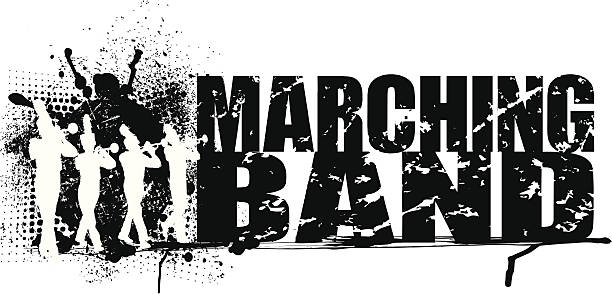Have you ever wondered about the stories behind your favorite famous band names? From legendary rock groups to modern indie darlings, the origins of band names often reveal fascinating tales that are just as captivating as the music itself. Understanding the meanings of famous band names provides insight into the creative minds of artists and the cultural contexts that shaped their identities.
In this comprehensive exploration, we’ll dive deep into the band name meaning behind some of the most iconic groups in music history, uncovering the surprising, amusing, and sometimes profound stories that led to these memorable monikers.

The Art of Naming: Why Band Names Matter
Before we explore specific examples, it’s important to understand why famous band names carry such significance in the music industry. A band’s name serves as their first impression, brand identity, and cultural statement all rolled into one. The meanings of famous band names often reflect the era they emerged from, the genre they represent, and the artistic vision they embody.
Many successful bands have names that are memorable, easy to pronounce, and distinctive enough to stand out in a crowded marketplace. Some famous band names are carefully crafted with deep symbolic meaning, while others emerge from spontaneous moments of inspiration or even complete accidents.
Classic Rock Legends: The Stories Behind Iconic Names
The Beatles: A Pun That Changed Music History
The Beatles’ name is one of the most famous wordplay examples in music history. It wasn’t until 1960 that they settled on ‘The Beatles,’ a play on words combining ‘beat’ with ‘beetles’. The name was suggested by John Lennon and is said to be a nod to Buddy Holly’s band, The Crickets.
John Lennon himself explained: “It was beat and beetles and when you said it, people thought of crawly things, and when you read it, it was beat music.” This clever dual meaning perfectly captured both the musical genre they represented and created a memorable visual association.
The Rolling Stones: Born from the Blues
The Rolling Stones got their name from a Muddy Waters song. The track “Rollin’ Stone” caught founder Brian Jones’s eye and he suggested it without missing a beat. The rest of the band loved the blues and Muddy Waters so they accepted the serendipitous turn of events. This name choice reflected their deep connection to American blues music and established their rebellious, nomadic image from the start.
AC/DC: More Than Just Electrical Terms
AC/DC represents Alternating Current and Direct Current in electrical terminology, but the band name meaning goes deeper than physics. The name suggested the raw power and energy that would become synonymous with their hard rock sound. The electrical metaphor perfectly captured their high-voltage performances and became one of rock’s most recognizable logos.
Alternative and Grunge: Names from a Different Era
Nirvana: Seeking Enlightenment Through Sound
The band name Nirvana refers to the Buddhist concept of ultimate spiritual enlightenment and liberation from suffering. Kurt Cobain chose this name to reflect the transcendent experience he hoped his music would provide listeners. The irony wasn’t lost on fans that a band named after spiritual peace would become the voice of Generation X’s angst and disillusionment.
Radiohead: From Talking Heads to Oxford Innovation
Radiohead took their name from a Talking Heads song. It’s track six on their 1986 album True Stories. Originally known as “On a Friday” (referring to their usual rehearsal day), they changed their name in 1991, adopting “Radiohead” as a tribute to the Talking Heads song.
The original name “On a Friday” referred to the band’s usual rehearsal day in their school’s music room. The evolution from this practical name to the more artistic “Radiohead” marked their transformation from schoolmates to serious musicians.
Modern Indie and Alternative: Creative Naming in the Digital Age
Arctic Monkeys: Schoolyard Creativity
The Arctic Monkeys’ name was coined by guitarist Jamie Cook when they were still in school. Cook thought it sounded cool, and it stuck, even though it didn’t have any particular meaning. Lead singer Alex Turner later confessed that if he had his way, they might have gone with something more serious, but Arctic Monkeys had become a brand in its own right.
Linkin Park: Practical Domain Considerations
Linkin Park’s name has mundane origins – it comes from Lincoln Park in Santa Monica, which Chester Bennington used to drive past on his way to the studio. The spelling was changed for the band so they could get their own domain name. This shows how practical considerations in the internet age can influence band name meanings.
The Darker Side: Heavy Metal and Punk Origins

Black Flag: Anarchy in Musical Form
Black Flag was suggested by guitarist Greg Ginn’s brother, Raymond Pettibone, because “if a white flag means surrender, a black flag means anarchy.” This powerful symbolism perfectly encapsulated the punk movement’s anti-establishment ethos.
Sepultura: Lost in Translation
Sepultura means ‘grave’ in Portuguese, but the story behind the name is even more interesting. Frontman Max Cavalera came upon the word while translating the lyrics to Motörhead’s “Dancing On Your Grave” into Portuguese. This cross-cultural inspiration demonstrates how famous band names can emerge from unexpected linguistic discoveries.
Electronic and Experimental: Names for the Digital Age
The Mars Volta: Literary and Astronomical Influences
The Mars Volta’s name originated from combining a word from author Federico Fellini (volta) with the planet Mars, as explained by Cedric Bixler-Zavala in an interview. This sophisticated combination reflects the band’s complex, experimental approach to music.
The Psychology Behind Memorable Band Names
The most successful famous band names often share certain characteristics that make them stick in listeners’ minds. They may use:
- Wordplay and puns (like The Beatles)
- Visual imagery (Arctic Monkeys, Black Flag)
- Cultural references (Radiohead, The Mars Volta)
- Emotional concepts (Nirvana, Joy Division)
- Mysterious or intriguing combinations (Radiohead, Pink Floyd)
Regional and Cultural Influences
Band name meanings often reflect the cultural context of their origins. American bands frequently reference geographic locations, while British bands might draw from literature or wordplay. The globalization of music has led to more cross-cultural influences in naming conventions.
The Arabic Connection: معاني أسماء الفرق الشهيرة
When exploring meanings of famous band names in Arabic contexts, we find interesting linguistic parallels. Many English band names, when translated, take on new layers of meaning that resonate differently with Arabic-speaking audiences. This cultural translation of famous band names creates unique interpretations that can enhance or transform the original intent.
The Evolution of Band Naming
As the music industry has evolved, so have naming conventions. Early rock bands often chose names that suggested rebellion or power. The punk era brought more aggressive, political names. The alternative rock movement introduced more abstract, artistic concepts. Today’s streaming era has seen bands choose names that work well as hashtags and search terms.
Common Naming Mistakes and Lessons Learned

Several successful bands have admitted to regretting their name choices or wishing they had chosen something different. Some common pitfalls include:
- Names that are difficult to pronounce or spell
- Names that are too similar to existing bands
- Names that don’t translate well internationally
- Names that become dated or embarrassing over time
The Business Side of Band Names
In today’s music industry, famous band names must consider:
- Domain name availability
- Social media handles
- Trademark issues
- International market appeal
- Search engine optimization
These practical considerations now play a larger role in band name meanings than ever before.
How Band Names Influence Fan Connection
The psychology of band names plays a crucial role in fan engagement. Names that evoke strong imagery or emotions create deeper connections with listeners. Fans often identify with the concepts behind their favorite band names, making the name part of their own identity.
The Future of Band Naming
As music consumption becomes increasingly digital and global, band names must work across cultures, languages, and platforms. We’re seeing trends toward:
- Shorter, more memorable names
- Names that work well as social media handles
- Culturally neutral concepts that translate globally
- Names optimized for voice search and AI recommendation systems
Conclusion: The Lasting Power of a Great Name
The meanings of famous band names reveal the creativity, cultural influences, and sometimes pure chance that shape musical history. From The Beatles’ clever wordplay to Radiohead’s tribute to their influences, these names become inseparable from the music they represent.
Understanding band name meaning enriches our appreciation of the artists and their work. Whether born from deep philosophical concepts, spontaneous inspiration, or practical necessity, the best band names capture something essential about the music and era they represent.
As new bands continue to emerge, the challenge of creating a memorable, meaningful name that stands the test of time remains as important as ever. The stories behind these famous band names remind us that sometimes the most enduring legacies begin with a single moment of inspiration, a chance encounter with a word, or simply the practical need to book a rehearsal room on a Friday.
In the end, the greatest band names become more than just identifiers—they become symbols that represent entire movements, generations, and the transformative power of music itself. Whether you’re a musician seeking inspiration for your own band name or simply a music lover curious about the origins of your favorite groups, these stories demonstrate that behind every great band name lies a tale worth telling.
Understanding the meanings of famous band names connects us to the rich tapestry of musical history and the creative minds that shaped it. From practical origins to profound philosophical concepts, these names continue to inspire new generations of musicians and music lovers alike.

